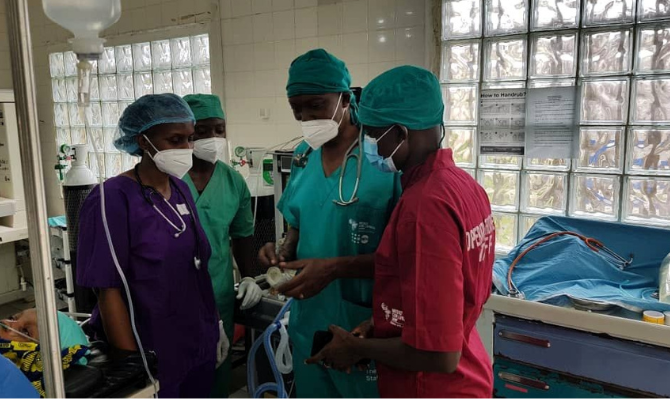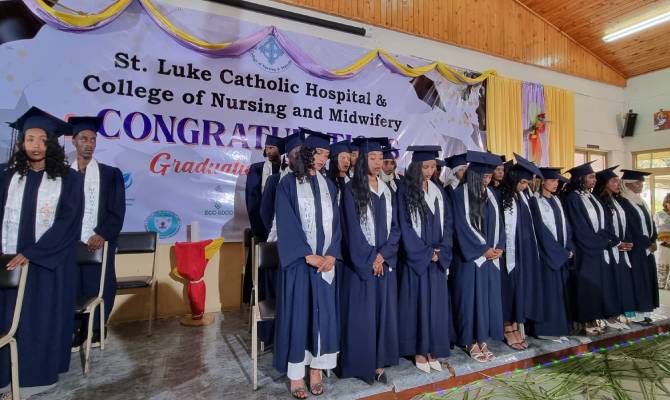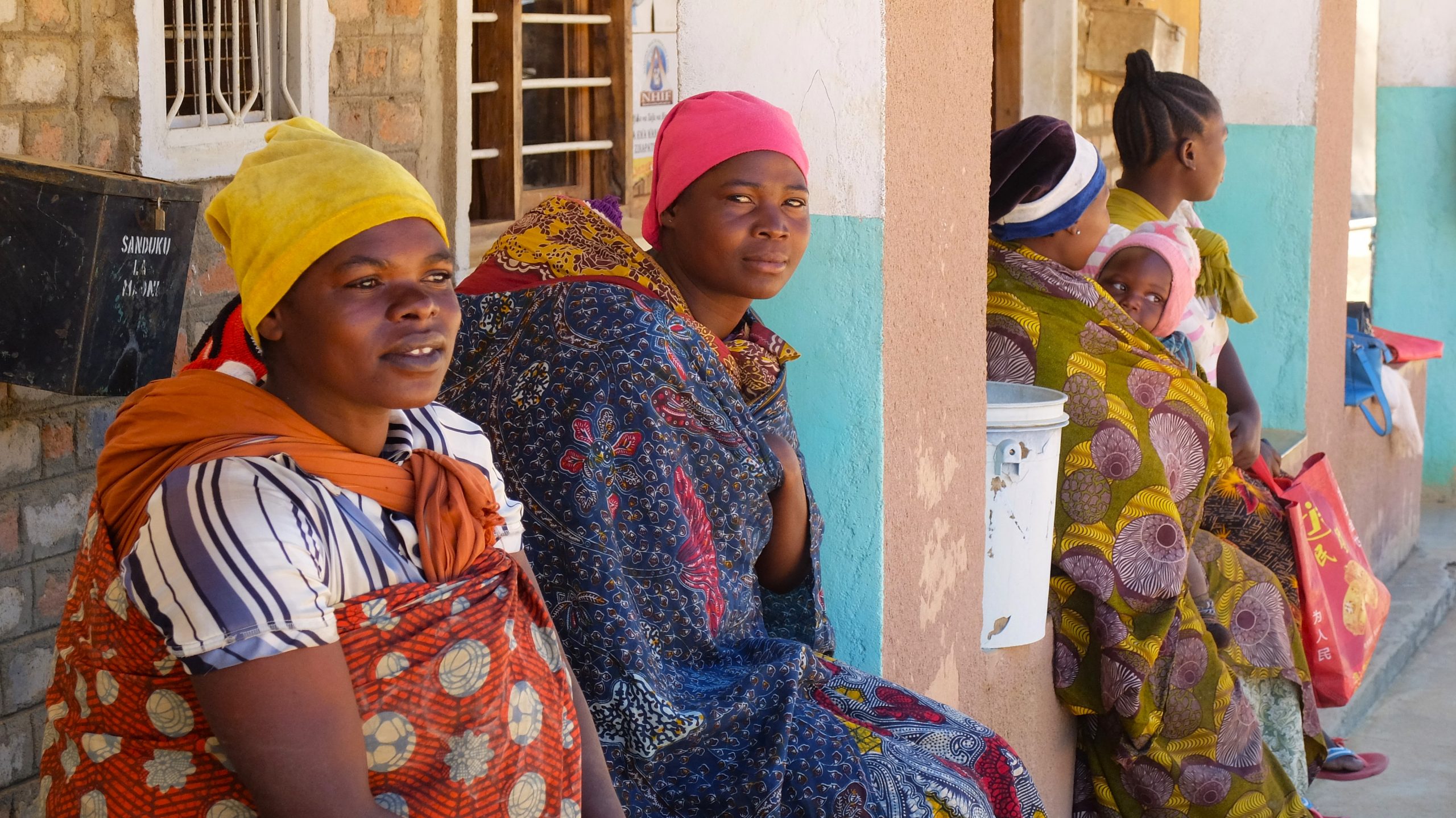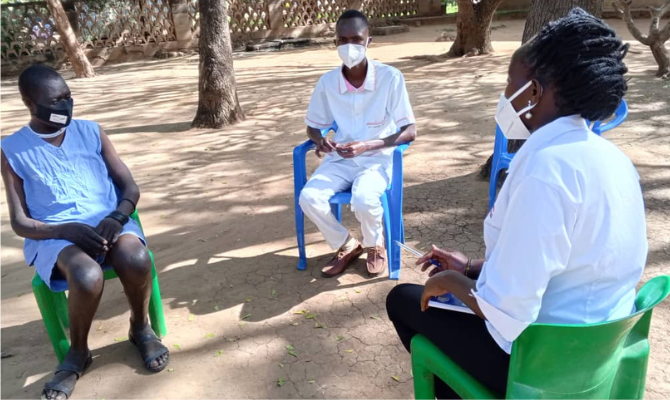In the heart of Sierra Leone, in Pujehun, one of the most remote and vulnerable districts in the country, an initiative is underway that will greatly strengthen healthcare in the area. The local hospital, an essential bulwark for a population of over 500,000 people without alternative healthcare facilities, whether private or missionary, is the hub of an innovative mentoring programme for trainee nurses specialising in anaesthesia. This is not just any course: it is the only one of its kind in Sierra Leone.
Thanks to the synergy between the Sierra Leone Ministry of Health, the Department of Anaesthesia and Resuscitation at the Sierra Leone University Hospital Complex at Connaught Hospital, along with Mercy Ships, through the “S.K.I.L.L.E.D” project – funded by the Italian Agency for Development Cooperation and implemented by CUAMM – young nurses are acquiring essential skills to improve healthcare in the country.
Robert Ejangat is an experienced Ugandan anaesthetist who guides these students on their journey. Robert is not only a clinical tutor, he is a mentor who shares his vast experience gained in humanitarian contexts, ensuring that each trainee acquires the skills and confidence necessary for a demanding and very delicate profession.
“The introduction of the anaesthesia mentoring programme in Pujehun,” says Robert, “has had an extremely positive impact on the quality of surgical and anaesthetic services.” His presence, together with that of his expatriate colleague Dhillon from Kenya, has strengthened the operating theatre and the ward, where every operation is a race against time. Imagine: Pujehun Hospital receives patients from over 100 peripheral health centres. Every emergency, especially obstetric emergencies requiring an emergency caesarean section, was a potential tragedy, often aggravated by delays in transfers. Now, thanks to more qualified anaesthetic nurses and the constant support of CUAMM, the answers are there. Mothers can receive timely care, preventing disastrous outcomes for them and their babies.
Despite limited resources, the commitment is great. Local anaesthesia is preferred, as it is ideal for training trainees, and every patient undergoing general anaesthesia is ensured endotracheal intubation. This practice, vital for preventing gastric contents from being inhaled into the lungs – one of the leading causes of maternal mortality in obstetrics – is now standard, greatly improving patient safety. Robert passionately emphasises the seriousness and unique importance of the role that awaits these future specialists. “Anaesthesia is a specialty that requires technical expertise, critical thinking, clinical knowledge, professional judgement, communication skills and a keen focus on patient safety. Anaesthesia nurses need to identify and manage problems quickly, otherwise the patient’s life is at serious risk.’
The internship in Pujehun is not just training. It prepares these nurses to administer anaesthesia safely even in complex settings, to respond to obstetric emergencies and to become a vital resource for a country that has only 50 nurse anaesthetists for 8 million people, with a very high birth rate. Many prefer to work in the capital, leaving rural areas such as Pujehun with a severe shortage of qualified personnel, a situation made even more critical by the high incidence of teenage pregnancies, which often require emergency caesarean sections.
During their training, trainees are immersed in daily practice: they assess patients, develop personalised anaesthesia plans, check equipment, constantly monitor vital signs and accompany patients through the delicate post-operative period. Every day, ward meetings and group discussions enrich their knowledge.
Supervision is a continuous process based on collaboration, observation and practical demonstrations, questions and immediate correction of clinical errors. Robert and his team ensure that no one is left behind by sharing experiences, creating a positive learning environment and taking student feedback into account to promote continuous improvement in training.
This programme in Pujehun is not just a healthcare initiative; it is an act of faith in the future, weaving a network of essential skills to save countless lives and bring a wave of hope to one of Sierra Leone’s neediest communities.





